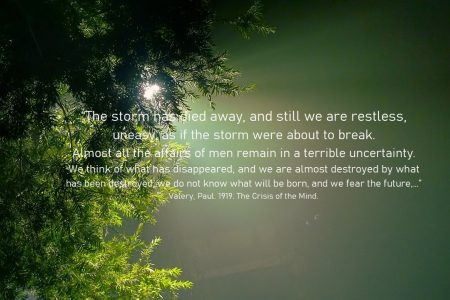Fear of the coronavirus is also pervasive
We’re susceptible not only to viruses, but also to fear of viruses. What are the psychological principles at work here?
Originally published in Dutch on NRC.nl
All over the world, thousands of people have now been infected with the coronavirus. China has seen the highest number of cases thus far, but the virus has also struck in Italy, France, the US, Canada, and Japan. Headlines such as “Coronavirus: how worried should we be?”, and “Corona death toll rises” reflect people’s growing fear of the virus. But is that fear justified? It’s still difficult to answer that question in the short term, given that the disease is a new one. But there’s nothing new about the rampant fear. The cause of this fear lies in various psychological heuristics (underlying principles that influence the choices people make).
Feelings of fear
Remember SARS? And the Mexican flu, or the Zika virus? They were all very different diseases, but they all played on the same fears that many people are feeling now. The news about a new disease often spreads more quickly than the disease itself; this shows that our worries about the threat may be excessive. The fact that people are so susceptible to these sorts of feelings of fear is due to cognitive biases that prompt anxiety. The more we fear something, the better we store relevant information in our memory and the more easily we can recall this information to our conscious mind. This phenomenon is also known as the availability heuristic. Think back to where you were on 9/11 and “pop” – you immediately re-experience the feelings you had then.
Unknown risks
But why does the coronavirus prompt such fear? Why do we worry more about this virus than about a much greater threat, such as common or garden flu, which kills many more people in the same age categories? Psychological insights have shown that we are instinctively more anxious about new risks than familiar risks. This is probably because we worry more about risks we have no control over: our lack of control and knowledge makes us feel powerless. So with new risks, lack of knowledge leads to more fear.
Premature conclusions
Another related psychological phenomenon that fuels our fears of the coronavirus is the representative bias: the principle that when thinking about the danger of infection, for instance, we are too quick to assume, even on the basis of one shared characteristic, that ‘this means’ this time things will go exactly the same way as last time. People often reach premature conclusions on the basis of the first piece of information they receive about something new. These premature conclusions are often in line with what we already know. Just think how quickly we jump to conclusions about people when we hear what party they vote for, for instance. The media have warned us over and over that a worldwide pandemic of some kind is just a matter of time: it’s a question of when rather than whether. And we often hear that this decimating virus will spread from animals and will originate in a densely populated country. Sound familiar? So will this one be the big one? It’s not so strange that we fear the worst.
Risk perception
How do we manage our fear? We go in search of information, because knowledge gives us back our sense of control. So it will come as no surprise that GoogleTrends reports a 1000 per cent rise in the search term “coronavirus symptoms” in the last month. Risk can be seen as a state of mind. Our fear is fuelled not only by facts, but even more so by the feelings these facts inspire. But worrying about new risks at the expense of known risks can actually be dangerous. Influenza is much more deadly, but because it is nothing new, many people don’t even bother to have a flu jab. The same applies to climate change: it’s such a familiar threat that we seldom take measures to protect ourselves. Worrying about the coronavirus – a newer, less familiar threat – is perhaps unnecessary for most Dutch people who haven’t been in contact with people from an outbreak area. Generally our perception of risk is pretty accurate. It’s served our species well in evolution. Whether we over- or under-estimate threats, what is important to understand is that our perceptions of risk are subjective and emotional, and that people sometimes estimate threats incorrectly. This is crucial if we are to vaccinate ourselves efficiently against the dangers of the world.





